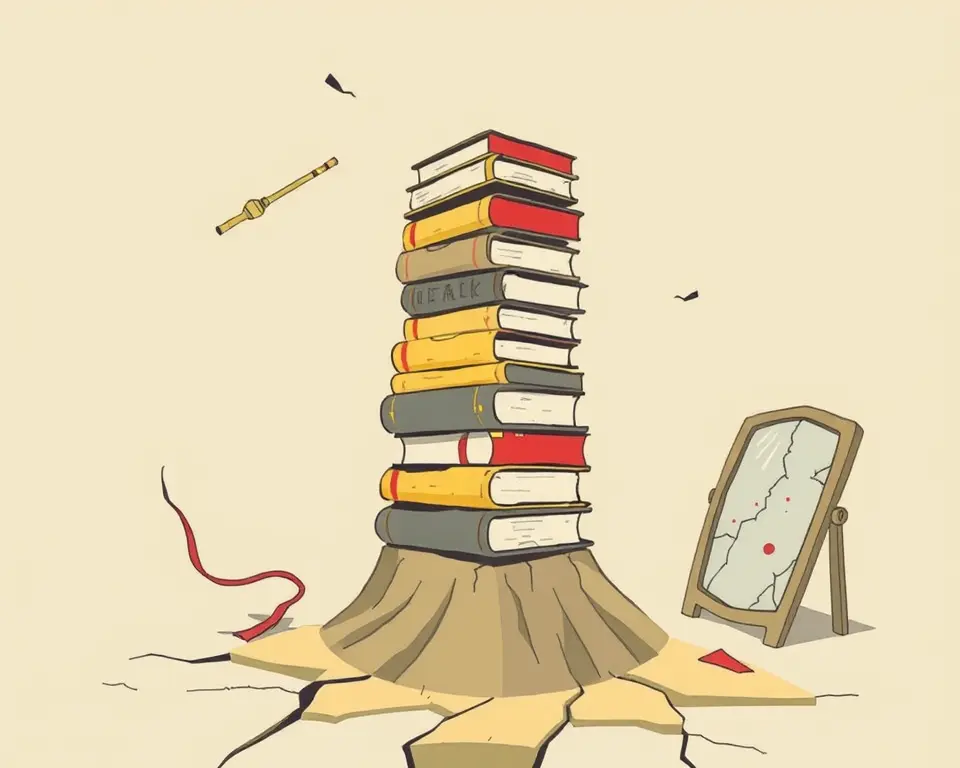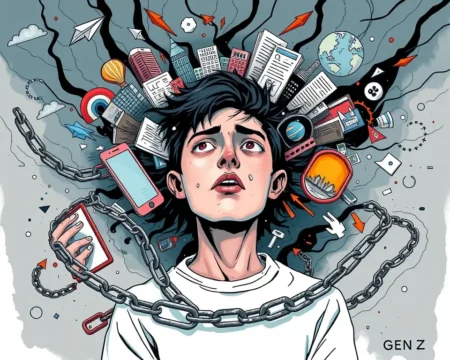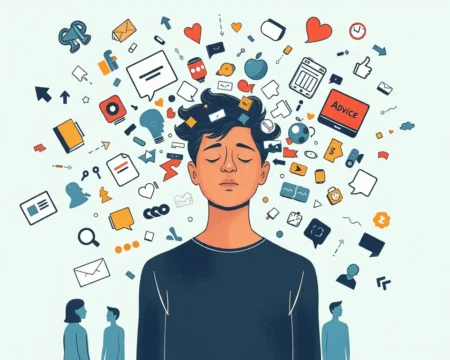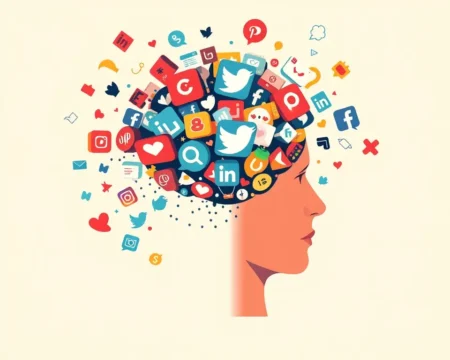Self-help books focused on mental health and wellness have become increasingly popular, promising guidance and support for navigating life’s challenges. But how do you know if the advice you’re reading is sound? Just because a book is a bestseller doesn’t guarantee the author is qualified to give mental health advice. It’s crucial to check the author’s credentials before taking their words as gospel.
The Allure of Self-Help
Self-help books account for a significant portion of non-fiction book sales. They cover diverse topics, from relationships and career advice to mental health and spirituality. These books can offer inspiration and valuable insights, but it’s important to approach them with a critical eye.
Why Are Self-Help Books So Popular?
- Accessibility: They offer readily available advice and strategies for dealing with mental health concerns.
- Anonymity: Reading a book can feel less intimidating than seeking professional help.
- Affordability: Books are often more affordable than therapy sessions.
- Hope: They provide hope and the potential for self-improvement.
The Risks of Unqualified Advice
While many self-help books offer helpful suggestions, mental health issues are complex and nuanced. Advice from unqualified individuals can be risky, leading to:
- Delayed or Improper Treatment: Inaccurate guidance can postpone or hinder appropriate treatment.
- Misdiagnoses: Untrained individuals may misinterpret symptoms.
- Harmful Advice: Inappropriate suggestions can worsen existing issues or create new ones.
- Exacerbation of Issues: Well-meaning but ill-informed advice can increase stress and anxiety.
- Erosion of Trust: Misinformation can undermine trust in qualified professionals and evidence-based practices.
Real-World Consequences
- Workplace Mental Health: Unqualified guidance in workplace mental health programs can lead to improper treatment and exacerbate issues.
- Social Media Influence: Untrained social media influencers can spread misinformation, leading to potential harm.
- Counselling Services: Unqualified counselors may fail to recognize serious issues like family violence, providing advice that worsens conflicts.
Spotting the Red Flags
It can be difficult to discern good advice from bad, but here are some red flags to watch out for:
Author-Related Red Flags
- Vague or Misleading Credentials: Be wary of authors who lack clear qualifications or provide unsubstantiated credentials.
- Lack of Formal Training: Many self-help authors don’t have formal training in psychology or mental health.
- Over-Reliance on Personal Anecdotes: Authors who primarily use personal stories instead of scientific evidence may not provide reliable advice.
- No Affiliation with Professional Organizations: Authors not affiliated with mental health organizations or academic institutions may lack credibility.
Content-Related Red Flags
- Promises of Quick Fixes: Be skeptical of books that guarantee rapid solutions or claim to “fix your trauma in one session”.
- Generalized Advice: Mental health is complex, so generic advice may not be suitable for everyone.
- Lack of Scientific Evidence: Look for books grounded in rigorous scientific research rather than subjective experiences.
- Inappropriate Promises: Beware of books that inappropriately promise a cure after reading the text.
- Harmful Advice: Some books may contain potentially harmful advice, such as recommending unproven herbal remedies for depression.
Ethical Red Flags
- Lack of Professionalism: Look for signs of ethical practices, such as respect for privacy, proper citation of sources, and disclaimers advising readers to seek professional help when needed.
- Abusive or Exploitative Behaviors: If you have concerns about a provider’s behavior, end the therapeutic relationship and contact your state’s licensing board.
- Conflicts of Interest: Extra-professional relationships, such as economic ones, are a red flag because they lead to conflicts of interest and decreased professionalism.
Checking for Credibility: Your Due Diligence Checklist
Before diving into a mental health book, take these steps to ensure you’re getting advice from a reliable source:
1. Verify the Author’s Credentials
- Education and Training: Look for degrees, certifications, and licenses in psychology, psychiatry, counseling, or related fields.
- Professional Affiliations: Check if the author is affiliated with reputable organizations like the American Psychological Association (APA) or the American Psychiatric Association (APA).
- Experience: Consider the author’s years of experience in the mental health field.
- Medical Register: You can check the details of a psychiatrist, including their area of specialty, by looking on the medical register.
2. Look for Peer Recognition and Validation
- Endorsements: Check for endorsements or mentions from reputable professionals or organizations in the mental health community.
- Collaborations: Look for collaborations with recognized experts in the field.
- Publications: See if the author has published research in peer-reviewed journals.
3. Evaluate the Content
- Evidence-Based Information: Ensure the book draws on peer-reviewed research and evidence-based strategies.
- Balanced Perspective: Look for content that acknowledges the complexity of mental health issues and doesn’t offer simplistic solutions.
- Realistic Expectations: The book should prepare readers for potential setbacks and treatment failures.
- Ethical Practices: Check for respect for privacy, proper citation of sources, and disclaimers advising readers to seek professional help when needed.
4. Consider the Source
- Reputable Publishers: Favor books from established publishers known for their rigorous fact-checking processes.
- Organizational Websites: Government and non-profit organization websites are the best starting points when looking for reliable mental health information.
- .edu and .gov Websites: Websites ending in .edu (educational institutions) and .gov (governmental entities) generally contain accurate and unbiased information.
5. Use Lateral Reading
- Check What Others Say: Look at what others have written about your source, its author, and publisher to evaluate credibility.
- Lateral + Search: Look across other sources at what they have to say about the source you are evaluating.
Who Are the Qualified Experts?
Navigating the world of mental health professionals can be confusing. Here’s a breakdown of some key roles:
Psychiatrist
- Definition: A medical doctor (M.D. or D.O.) specializing in mental health.
- Qualifications: Requires a medical degree, residency in psychiatry, and board certification.
- What They Do: Diagnose and treat mental health conditions, prescribe medication, and may offer psychotherapy.
- Licensing: Must obtain the appropriate medical license in their state and certification from the American Board of Psychiatry and Neurology (ABPN).
Psychologist
- Definition: A professional trained in psychology, the science of thoughts, emotions, and behaviors.
- Qualifications: Typically holds a doctoral degree (Ph.D., Psy.D., or Ed.D.) and must be licensed.
- What They Do: Identify and treat mental health conditions through various forms of talk therapy; cannot prescribe medication in most states.
- Licensing: Requires a doctoral degree in psychology from a regionally accredited institution, supervised hours, and passing the Examination for Professional Practice in Psychology (EPPP).
Counselor/Therapist
- Definition: A professional who provides counseling and support to individuals, couples, families, and groups.
- Qualifications: Varies by state, but often requires a master’s degree in counseling, social work, or a related field, plus licensure.
- What They Do: Help clients cope with mental health issues, relationship problems, and life challenges through talk therapy and other interventions.
- Red Flags: Assurances like “I can fix your trauma in one session” and vague or misleading credentials.
Psychiatric Mental Health Nurse (P.M.H.N.)
- Definition: A registered nurse (R.N.) with training in mental health issues.
- Qualifications: Requires a nursing degree and specialized training in psychiatric mental health; an advanced-practice registered nurse (P.M.H.-A.P.R.N.) has at least a master’s degree.
- What They Do: Provide mental health care, including assessment, diagnosis, and treatment; advanced practice nurses may prescribe medication.
Licensed Clinical Social Worker (L.C.S.W.)
- Definition: A social worker with training and experience in mental health.
- Qualifications: Must have a master’s degree in social work.
- What They Do: Offer assessment, counseling, and a range of other services; they are not licensed to prescribe medicines.
Where to Find Qualified Mental Health Professionals
- Primary Care Physician: Your GP can diagnose mental health conditions, discuss treatment options, prescribe medication, and provide referrals to other mental health professionals.
- Health Insurance Company: Contact your insurer for a list of covered mental health providers.
- Community Mental Health Centers: These centers often provide therapy services on a sliding scale or free of charge.
- Online Therapy Platforms: Websites and apps like BetterHelp and Talkspace offer access to licensed therapists for virtual sessions.
- Professional Associations: Search the internet for professional associations that have directories of mental health providers, such as the American Medical Association, American Psychiatric Association, or American Psychological Association.
- National Alliance on Mental Illness (NAMI): Contact NAMI for referrals and support.
The Bottom Line
Self-help books can be valuable tools, but they are not a substitute for professional mental health care. Always prioritize authors with verified credentials and evidence-based content. By carefully evaluating the source and the advice, you can ensure you’re taking steps toward genuine well-being. If you’re struggling with your mental health, consider consulting a qualified mental health professional for personalized guidance and support.










